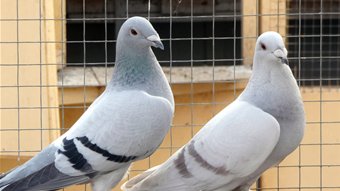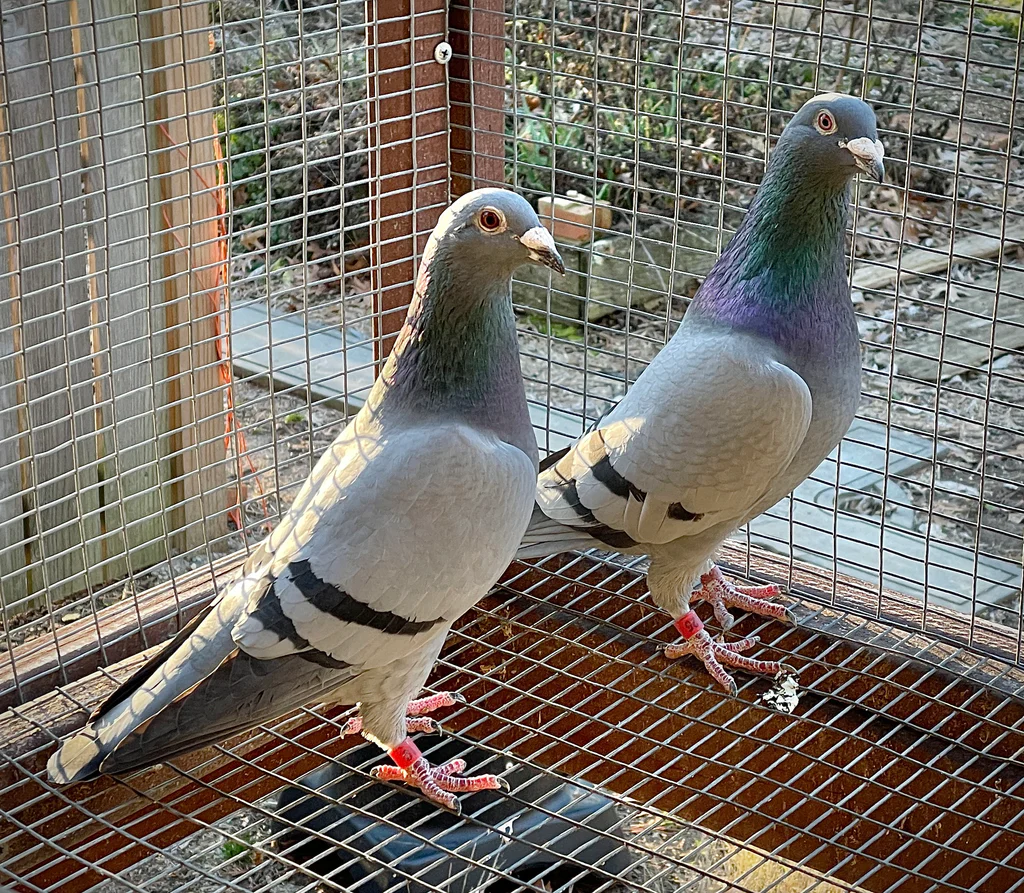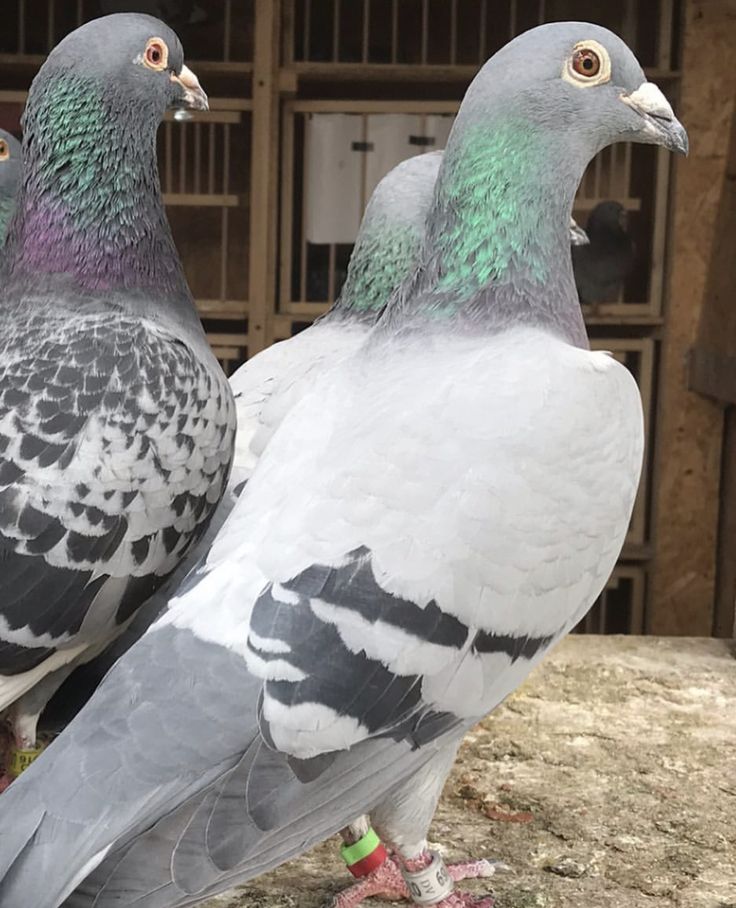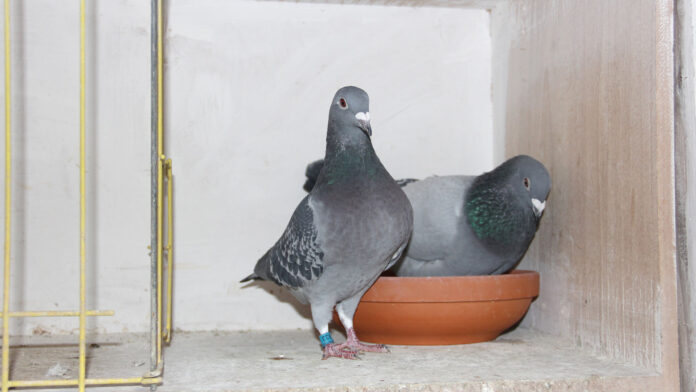Breeding racing pigeons is a fascinating and rewarding hobby that combines skill, knowledge, and a deep appreciation for these remarkable birds. Whether you’re a seasoned fancier or just starting out, understanding the fundamentals of breeding, training, and caring for racing pigeons is essential for success. In this blog post, we’ll explore key aspects of breeding racing pigeons, from selecting the right breeds to preparing for competition, ensuring that you have the information you need to excel in this exciting pursuit.
Choosing the Right Breeds
When it comes to breeding racing pigeons, selecting the right breed is crucial for achieving optimal performance. Popular breeds include the Homing Pigeon, known for its exceptional navigational skills, and the Birmingham Roller, celebrated for its unique flying style. Each breed has distinct traits, such as speed, endurance, and temperament, that can significantly impact racing success. Consider factors like the specific racing goals you have and the environment in which you’ll be raising them. Researching and understanding these breeds will help ensure that you choose the best fit for your breeding program and ultimately enhance your chances in the competitive racing scene.

Housing and Environment
Creating a suitable housing environment is essential for breeding racing pigeons effectively. The space should be clean, secure, and well-ventilated to promote the health and well-being of your birds. Ideally, your loft should be insulated to protect against extreme weather conditions, as temperature fluctuations can affect their performance.
Ensure that the housing is spacious enough for the number of pigeons you plan to breed, allowing them to move freely and exhibit natural behaviors. Providing separate sections for breeding pairs and young birds can help reduce stress and promote successful breeding outcomes.
In addition to physical space, consider the environmental factors that can influence your pigeons’ health. Access to natural light and fresh air is vital, as it helps regulate their circadian rhythms and overall mood. Regular cleaning and maintenance of the loft will prevent disease and create a healthier living space.
By investing time and resources into creating the right housing and environment for breeding racing pigeons, you can set the foundation for successful breeding and competitive performance.
Nutrition and Diet
Proper nutrition is a cornerstone of successful breeding racing pigeons. A balanced diet directly impacts their health, stamina, and overall racing performance. The primary components of a racing pigeon’s diet should include high-quality grains, protein sources, and essential vitamins and minerals.
Key Components of Their Diet:
- Grains: A mix of grains like corn, wheat, and barley serves as the foundation of their diet. These provide the necessary carbohydrates for energy, especially during training and racing.
- Protein: Including protein sources such as peas, beans, and specially formulated pigeon pellets is vital for muscle development and recovery. Protein aids in feather growth and overall health, which is crucial during breeding seasons.
- Vitamins and Minerals: Racing pigeons require a variety of vitamins and minerals to support their immune system and overall health. Supplements like calcium, phosphorus, and vitamins A, D, and E should be included to ensure optimal growth and breeding success.
- Water: Fresh, clean water must always be available. Hydration is essential, especially during hot weather or after intense training sessions.
- Adjustments for Breeding: During the breeding season, nutritional needs may shift. Increasing protein and energy levels can help support reproductive health and the growth of young pigeons.
By carefully managing the nutrition and diet of your racing pigeons, you’ll foster healthier birds that are better prepared for competition. This foundational aspect of breeding racing pigeons cannot be overlooked, as it plays a significant role in their overall performance and longevity.
Health and Veterinary Care
Maintaining the health of your racing pigeons is vital for successful breeding and performance. Regular veterinary care and proactive health management can prevent many common issues associated with breeding racing pigeons.
Key Health Considerations:
- Routine Check-Ups: Schedule regular veterinary visits to monitor the health of your birds. Routine check-ups can help catch potential health issues early.
- Vaccinations: Vaccinations against diseases such as avian pox and paramyxovirus are essential. Consult your veterinarian to create a vaccination schedule tailored to your birds’ needs.
- Parasite Control: Implement a program for managing internal and external parasites. Regular deworming and treatments for mites or lice can help maintain a healthy flock.
- Signs of Illness: Be vigilant for signs of illness, such as changes in appetite, behavior, or droppings. Early detection of health issues can make treatment more effective.
- Hygiene Practices: Maintain a clean environment in your loft. Regular cleaning and disinfection help prevent disease outbreaks and keep your pigeons healthy.
- Nutrition Impact: Remember that proper nutrition supports overall health. A well-balanced diet boosts immunity and reduces the risk of diseases.

By prioritizing health and veterinary care, you can ensure that your racing pigeons remain in peak condition, ultimately enhancing their performance and success in races.
Breeding Techniques
Successful breeding techniques are essential for producing high-quality racing pigeons. Understanding and applying the right methods can enhance the traits you desire in your birds. Here are some effective breeding techniques to consider:
1. Selecting Breeding Pairs
Choose breeding pairs based on desirable traits such as speed, endurance, and health. Evaluate their racing performance history, lineage, and physical characteristics. Selecting birds with complementary traits can enhance the likelihood of producing strong offspring.
2. Genetic Diversity
Maintain genetic diversity within your breeding program. This practice helps prevent inbreeding, which can lead to health issues and reduced performance. Introduce new bloodlines periodically to strengthen your flock.
3. Controlled Breeding Environment
Create a calm and comfortable environment for breeding. Reduce stressors by providing adequate space, clean housing, and proper nutrition. A healthy environment encourages successful mating and chick development.
4. Timing Breeding Cycles
Monitor the natural breeding cycles of your pigeons. Plan breeding sessions during optimal times, typically in the spring or early summer, when environmental conditions are favorable for raising young.
5. Egg Management
Once eggs are laid, ensure proper incubation conditions. Maintain a stable temperature and humidity level in the nesting area. Regularly check on the eggs, and if using artificial incubation, consider turning them periodically.
6. Nurturing Young Birds
After hatching, provide the right nutrition for both the parents and the chicks. High-quality feed is crucial for the health of young birds. Ensure that parents are well-cared for, as they play a vital role in nurturing their offspring.
By implementing these breeding techniques, you can optimize your efforts in breeding racing pigeons, leading to healthier, more competitive birds. A strategic approach will enhance the overall quality of your breeding program and contribute to your success in racing.
Racing Preparation and Competition
Preparing your racing pigeons for competition is a crucial step in maximizing their performance. A well-structured approach ensures that your birds are physically fit, mentally sharp, and ready to face the challenges of racing. Here are key considerations for effective racing preparation:

1. Physical Conditioning
Start conditioning your pigeons weeks before the race. Implement a consistent training schedule that includes both short and long-distance flights. Gradually increase the distance to build their stamina and endurance.
2. Nutrition Prior to the Race
Focus on providing a high-energy diet in the days leading up to the race. This should include quality grains and protein sources to fuel their bodies. Ensure they have access to fresh water, as hydration is critical for optimal performance.
3. Health Check
Conduct a thorough health check before the race. Ensure that your pigeons are free from illness and parasites. A healthy bird is more likely to perform well and complete the race successfully.
4. Acclimatization
Familiarize your pigeons with the race environment. If possible, transport them to the race location ahead of time. This acclimatization helps reduce stress and enhances their ability to navigate effectively.
5. Timing and Release Strategy
Understand the timing of the race and strategize accordingly. Different weather conditions can impact performance, so plan your release strategy based on the forecast. Optimal release times can improve the chances of success.
6. Post-Race Care
After the race, monitor your pigeons for signs of fatigue or injury. Provide them with a nutritious recovery diet and ensure they have a comfortable place to rest. Proper aftercare will help them recuperate and prepare for future races.
Conclusion
Breeding racing pigeons is a rewarding endeavor that combines passion, strategy, and dedication. By understanding the essential components—such as choosing the right breeds, providing proper housing and nutrition, ensuring health and veterinary care, employing effective training techniques, and preparing for competition—you can enhance the quality and performance of your birds. With careful planning and commitment to best practices, you’ll not only enjoy the process of breeding racing pigeons but also witness the ultimate results in competitive racing. Embrace the journey, learn from each experience, and celebrate the successes that come with your hard work and dedication.
Breeding racing pigeons Breeding racing pigeons Breeding racing pigeons Breeding racing pigeons Breeding racing pigeons Breeding racing pigeons


